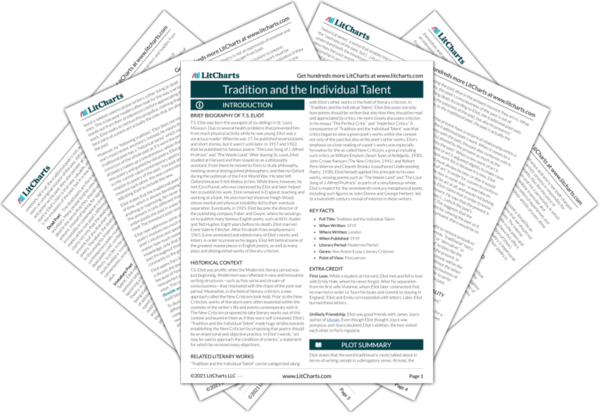AI ToolsNew
Tools to make learning and teaching easier
|
Previous
Part 1
|
Tradition and the Individual Talent: Part 2 Summary & Analysis |
Next
Part 3
|


Upgrade to unlock the analysis and theme tracking for all of Tradition and the Individual TalentTradition and the Individual Talent!
Get LitCharts A+